You’re listening to Burnt Toast! This is the podcast where we talk about diet culture, anti-fat bias, parenting, and health. I’m Virginia Sole-Smith and I also write the Burnt Toast newsletter.
Today I am chatting with Cole Kazdin. Cole is an award winning journalist who has written for Vice, The New York Times, Los Angeles Times, Los Angeles Magazine, and more. She’s also produced television for Good Morning America, Nightline, and World News Tonight, and has told stories live with The Moth’s Mainstage all over the country and on the Moth Radio Hour on NPR.
Cole is also the author of a brand new book, What's Eating Us: Women, Food, and the Epidemic of Body Anxiety, which explodes a lot of the problems with our current eating disorder treatment system. It’s an incredible mix of reporting and memoir. Cole is Fantastic. We get into some really important issues in the nuances of eating disorder treatment.
CW: This episodes does include a few specific mentions of eating disorder behaviors and treatment protocols. If any of that is not going to be good for you today, please skip this.
And remember, if you order What's Eating Us from the Burnt Toast Bookshop, you can get 10 percent off that purchase if you also order (or have already ordered!) Fat Talk! (Just use the code FATTALK at checkout.)
Episode 95 Transcript
Cole
I’m a journalist and now author. I worked in television news for many, many years and then left that work about 10 years ago to return to print journalism. If you’re a freelance journalist, you end up reporting about everything, right? Crime and the environment and breaking news. But I found myself focusing more and more on mental health reporting and in part that was because I was in a very unsatisfying moment of eating disorder recovery myself. And when I started reporting on mental health, specifically mental health around eating disorder recovery and the eating disorder epidemic, it really shifted the focus of my work to the point where it was all I wanted to really write about and thus the book.
Virginia
It’s called What's Eating Us: Women, Food, and the Epidemic of Body Anxiety. It’s incredible, Cole. Your reporting is top notch and then you also put your own story into this which I know can be difficult to do—to really go there—and you weave in other people’s stories. It’s just a beautiful mix of memoir and reporting.
Cole
Thank you.
Virginia
What made you decide this needed to be a book and this kind of book?
Cole
I had an eating disorder on and off through most of college and into my adult life. When I finally got treatment, I was very prepared for that treatment to be excellent and I’m done and now we don’t have an eating disorder anymore. It was so unsatisfying to me that it wasn’t remotely like that. It was more than the residue of the eating disorder. I was not very healed.
So, I started approaching it as a journalist, with the idea of seeing if I was the only one that felt this way. Is this in my own head? Am I crazy? Am I not able to recover because it’s just me? And also, as you know, as a journalist you can access people that would never talk to you if you are a patient.
Virginia
Oh yes. It’s a definite perk.
Cole
So I was writing short pieces about why doesn’t eating disorder recovery feel better? And what are the inequities in eating disorder care and in diagnosis? And the more I started reporting this, and the more people I spoke with both everyday people like myself who were suffering, and the clinicians, the researchers, the more I started to understand that not only was this not just in my head, this is the way it is. And understanding the scope of that, I felt an urgency to write a longer piece about this, to write a full book where I could reach all those points.
I use a lot of memoir because I think the transparency piece is very important. Eating disorders are very lonely and you really feel like you’re the only one suffering even though you know on paper that you’re not. So, I just wanted people to know how messy and difficult it is, to normalize that. And that no one is alone if they’re suffering from this.
Virginia
I mean, this whole concept of “full recovery” is so interesting. I feel like I’m beginning to see some pushback about that in the eating disorder therapist community. My good friend Shira Rosenbluth has talked a lot about her own eating disorder journey and this idea of full recovery being frankly unrealistic for so many people, given the current reality of treatments. Who currently gets to be fully recovered from an eating disorder?
Cole
What is so tricky about this is that no one can agree fully on what it means to be recovered from an eating disorder.
Virginia
I mean, that’s mind blowing right there.
Cole
Right. So, some organizations and clinicians define it as “you’re no longer engaging in the symptoms:” Starving, binging and purging, or whatever combination of those. Like, that would be a metric of recovery, that you’re no longer engaging in those symptoms. But then, in so many treatments, your underlying traumas or anything else that’s contributing to why you might have developed that eating disorder are not addressed.
I had a very good treatment, cognitive behavioral therapy, which is considered a gold standard—I don’t want to use the word “standard,” because there really is no standard of care with eating disorders. But the definition of recovery is so nebulous. NEDA, that National Eating Disorder Association, has a kind of definition where they say it’s addressing the physical medical issues, so whatever medical issues arose as a result of one’s eating disorder, then the behavioral symptoms, again whatever behaviors you’re engaging in that are disordered. And then the third category is the psychological piece, which no one can really define.
Virginia
That’s what we can’t nail down. And even right there, that feels complicated because you might make progress on behaviors and even the psychological piece, but have lingering medical complications, right? So that feels like a troubling metric. And then: In the same way that abstinence is not full recovery from alcoholism or drug abuse, just making someone “behavior abstinent” is not the same thing as actually working through the disorder.
Cole
Right. And that’s why I think it feels so tricky, especially because we move around in this world where all of these behaviors that supported our disordered way of being—dieting, restricting food, giving up whatever the thing is, they are completely normalized in our culture. So if we have a feeling, oh, I don’t think I want to eat pasta. Okay, is that the eating disorder? Is that just our world that we live in?
I passed a store or restaurant in LA that said “Pasta! But with the calories of a salad.” Like, I don’t even know what that means. I won’t even unpack that here, we don’t have the time. But if that’s the world we’re moving around in once we’re recovered, then that’s the psychological piece—and that’s not even thinking about what your family history is and any other contributing factors.
One thing I’m starting to shape in my mind when I think about recovery is this idea of safety. And I think that’s the missing piece of recovery: Safety in our own bodies, and safety in the world that we’re living in. If we don’t have a sense of safety, we cannot be recovered. And I think the way you insulate yourself from the diet culture world we live in is with community. So, I think safety and community go hand in hand. And that’s what makes recovery feasible.
Because for especially people in marginalized communities who may feel the stress of say everyday racism, that person who may go through eating disorder treatment comes out into the world and still feels unsafe in their body. So will they be recovered? So, I don’t think you can have recovery without safety. And I think that’s one piece that’s not really being talked about.
The Whiteness of Not Wanting to Diet Anymore.
Virginia
That becomes such a complicated piece of it. For anyone who needs to recover into a fat body, you’re asking them to sacrifice the safety of their eating disorder in the sense that it’s harder to exist in this world in a fat body than in a thinner one. So there’s that layer to it. And then also all of that plays into who even accesses treatment in the first place. Like, who gets diagnosed, right?
Cole
I spoke with Gloria Lucas for the book, who’s an educator who’s doing some really interesting work in this area. She works with a lot of indigenous people who have a real connection of their body to the land. Their body is the land, the land is their body. She said, “how can anyone recover until they give the land back?” I thought, oh shit.
Virginia
That’s not something we can sort out in our treatment protocols. It shows the need for systemic change here. It’s not just people’s personal work to do.
Cole
Exactly. So we have to parse out what is the personal work that I can do? How can I kind of cobble this together? And you do, unfortunately, have to cobble this together. Because even if a person speaks to their general physician, that person may not know how to refer them or what what is the best treatment for them. So you have to piece this together yourself and know that there are a lot of systemic elements here that may not shift anytime soon.
Virginia
You have a lot of examples in the book of these moments in therapy where it’s just so clear that the treatment is not serving you or really anyone. There was one anecdote of the therapist who told you that when the need to purge arose, you should just journal or do a crossword puzzle. And you were like, Have you ever purged?
I’d love to talk about some other examples of this one-size-fits-no-one advice and how that also becomes such a barrier to recovery for people.
Cole
I mean, one-size-fits-no-one is the perfect way to put it because I cannot imagine any actual human who could benefit from some of this guidance. It shows a profound lack of understanding of the disorder and I think that’s also why so many people who have suffered from eating disorders may go into the field of treatment because they actually understand what someone is going through.
I think another not helpful and I would go so far as to say harmful piece of therapy was a sort of exposure therapy where the therapist wanted me to begin to include foods in my diet that I had previously restricted.
Now, that is not a bad idea.
Virginia
It’s the goal ultimately.
Cole
Right. I think it’s important to have a diet where you can eat anything and you’ll choose what you like and don’t like, right? You don’t have to eat everything, but you can.
So, she would give me assignments like “eat a food this week that you previously restricted.” Now, it was, I think, way too early in my recovery. Especially cognitive behavioral therapy, which did help me in many, many ways I do want to say, but there is a real textbook. This is a 20 week program. This is what we do week one, this is what we do week two, and there is no real attempt made to understand the individual because that’s not even what they’re trying to do. They want to change your behaviors using this way. I just envision that being studied for a population of people and not looking at individuals.

So she would ask, “what’s something you never ate?” “Well, pancakes.” “Okay, so this week, eat pancakes.” Well, I don’t think I was ready to eat pancakes.
And if we had talked a little bit more, just her getting to know me, Cole, and my behaviors, maybe she would have seen that and said, “let’s do that next year instead of week six or whatever,” right? Because then you’re white knuckling your way through the assignments And of course, many, many people with eating disorders do have black and white thinking, very rigid thinking. I went into treatment, really wanting to get an A+ so I was going to do every single thing she told me, whether it felt right or not, because I was still very sick.
But it felt like a force feeding and it felt really violating. At the time, I went along with these things because I didn’t trust myself. And I shouldn’t have trusted myself, right? Because I had gone a very long time making very harmful choices. But there is somewhere in there where you also feel heard. Instead, I really felt like I have no agency. I’m kind of choosing to hand this over, because obviously I’m making harmful decisions. I want to get better, A+ to me for even wanting that, and I’ll do whatever you tell me.
Virginia
I mean the parallels there to diet culture are so strong, right? Like, I can’t trust myself, I have to follow somebody else, I have to follow this program perfectly. If I don’t follow it perfectly and it doesn’t work, it’s my fault. That’s what diets teach us. So that’s disturbing when this is supposed to have the opposite goal.
Cole
I empathize with the clinicians sometimes, even the ones that give us advice that’s not helpful or that can even be harmful. Because eating disorders are so complex. For many people there is a neurological underpinning here that doesn’t explain the entire eating disorder, but explains part of it. I did not get hungry, I needed to be told when to eat. I still do that. I need to sometimes treat food like medicine, like, “you have to eat a yogurt right now. You’re not even remotely hungry, just eat it because you’re crashing right now.” So it’s difficult to understand that, while also understanding that someone may have grown up a certain way, where they treat food a certain way, maybe they had food scarcity, maybe they had a mother who always dieted.
There are just so many factors in why these eating disorders manifest the way they do. And it can be different for every person, but the therapy does not usually approach eating disorders in that way.
Virginia
Right. We have multiple diagnoses, but we still have this kind of catch-all approach. Like, we don’t really know what category you are. So we’ll lump you over here, in this diagnosis. And obviously, that’s doing such a disservice. Even within within a category like anorexia or bulimia, there’s going to be so many different versions of that. So to have the therapy be this kind of cookie cutter approach… and I don’t even know if classifying it as subtypes would be helpful or just like further stigmatizing, honestly. But at least, meet people where they are. And when it’s time to eat the pancakes, put the emotional support in place to help you eat the pancakes instead of just making it a homework assignment.
Cole
Right, and weight being still such a factor throughout. We’re hearing more backlash against the diagnosis of atypical anorexia, a diagnosis which still drives me crazy. And when I went into therapy for the first time, I was not weighed or medically checked or recommended to go to a doctor. I was very, very, very thin but I did not look like someone who could be cast in a movie about anorexia. So that made me wonder, Oh, am I not that sick? Am I not thin enough to be that sick? And and this was before the atypical anorexia classification emerged, when I was in treatment. But you can’t look at weight and we know that now. Like, we can’t look at weight as any indicator of whether someone is ill or not. But that is still a metric.
Virginia
The whole atypical anorexia thing is a nightmare. I mean, there’s nothing atypical about it. It’s most of the people with anorexia.
Cole
It’s infuriating.
Virginia
That stereotype is so harmful. I’ve interviewed folks who’ve talked about eating disorder therapists trying to be reassuring and being like, “I won’t let you gain that much weight.” So the way weight is sort of handled throughout the recovery process is also pretty fraught.
Cole
And is the idea of weight restoration correlated with BMI? Yes, it is. We don’t have to pivot to a BMI conversation, because you have those banked, but if that’s the definition of weight restoration, that’s problematic.
Virginia
Can you define what weight restoration is? We might not be as familiar with that term.
Cole
Right, of course. So if a person comes into treatment, when a doctor is thinking about how do we restore them to a “normal,” “healthy” weight, where do they go for that information? The BMI chart. I have heard people who when they get to a certain weight in a residential treatment, they are told they can now go back to restricting their food a certain way or you can return to exercise. Often people are not permitted to exercise if they are at a low weight.
And again, if someone has the same behaviors, but is in a larger body, I was told by people I spoke with in the book that they are told they can exercise because they’re in a larger body.
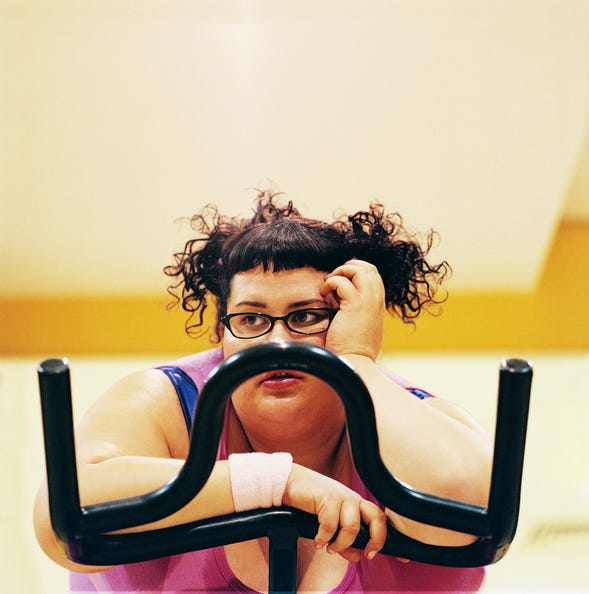
Virginia
It’s just wild. And we’ll link to a very good piece about atypical anorexia for anyone who needs to learn more about that whole conversation. Folks who come in bigger bodies are less likely to get diagnosed in the first place. They’re often sicker when they finally get to treatment. And then, yes, the behaviors are not taken as seriously or they’re even like, well, we don’t want you to gain too much, like that kind of narrative around their weight restoration as opposed to what do we need to get you back to.
Cole
And the classifications are tricky, because there’s the catch-all for everyone who doesn’t fall into anorexia, atypical anorexia, bulimia, binge eating, purging. There’s a catch-all for those people who don’t meet all of the dynamic diagnostic criteria to fall into one. Most of the people who show up in community clinics for eating disorders are in that catch-all, so that tells us something. I mean, the catch-all is exasperating but good because someone could maybe get insurance.
Virginia
Right, you can get some treatment covered.
Cole
Hahaha. As if, but maybe!
Virginia
In theory.
Cole
In some universe. On paper.
Virginia
In a European country, perhaps.
Cole
If you are in Norway. Those criteria are necessary, and maybe helpful for some people, but they also show us how off we are as a scientific community, and as a medical community, in understanding eating disorders, the fact that there’s this “and everyone else” category.
Virginia
“We don’t know, you seem sick.” It’s maddening. It’s so reductive and overly simplifying people’s struggles.
We also need to talk about the therapist who, as you say in the book, did legitimately help you in a lot of ways. And then later, when you got back in touch with her, you discovered she was consulting for a weight loss company. That’s a real record scratch moment for a lot of us. I don’t know that people understand how much of a revolving door there is between eating disorder treatment and weight loss management.
Cole
I wanted to be so careful with this because it not only makes me angry, but it breaks my heart. It really feels like a betrayal when you discover that not only someone maybe you worked with but other people in the field in high positions, in research treating patients or in relationships, sitting on the board of a diet company or working with a diet company. It’s crushing and I don’t understand it.
That’s how I am as a human, but when I flip to the journalist part, I want to really hold myself to task for what I’m not seeing, because I went through this first person. So come on, what’s the reason that someone in an eating disorder field would form a relationship with a weight loss company? There’s got to be something I’m missing. And I don’t think there is.
I think weight loss companies have a lot of money. Being an eating disorder clinician is a rough job, a lot of your patients do not get better. There is no standard of care. If you are in this field, it’s because I believe—I want to believe, I have to believe—you care about people suffering from these disorders that you understand. So those people are not people who are, like, trying to make fast cash. So, I’m trying to navigate in my own head why there’s crossover because there’s so much crossover.
Weight loss companies have booths at eating disorder conferences. Noom is in the eating disorder game. They’re doing a ton of research, they have grants, they are creating programs to treat binge eating disorder. Some of those programs look a lot like weight loss apps, but have maybe therapy combined with the weight loss apps. It’s still this weight loss centered model. Many people I spoke with who use weight loss apps also said it re-triggered an eating disorder for them. These weight loss apps are very dangerous. Potentially very dangerous, no very dangerous. I can say that. And the eating disorder crossover, if one wants to be cynical about it —one researcher I spoke with said, “they are creating a customer base.”
Virginia
I mean, that’s where I go.
Cole
And when that researcher said it, I said, “Well you said it, I’m just writing it down.”
Virginia
I also think from the weight loss company’s perspective, it makes total sense because the thing they are always criticized for is that they are promoting disordered eating. So, if they can say “no, no, we’re treating eating disorders,” that’s like their solution to what is a PR nightmare. I remember reporting a story on Kurbo, which was Weight Watchers’ weight loss app for kids. And their spokespeople were very much like, no, no, this is preventing eating disorders because we’re helping people do family meals and have schedules and regular snacks. And the fact that we have a list of red foods you’re not supposed to eat that includes avocados and bagels is like, what, don’t worry about that. A lot of it, from the industry’s perspective, makes sense to me.
Cole
And it doesn’t mean it’s not out there, but I haven’t seen a lot of weight loss sponsored research on anorexia.
Virginia
There was that wild study I cited it in my first book, the subject was something like lessons obesity treatment can learn from anorexia.
Cole
I mean, I guess what I’m saying is that none of these weight loss brands are trying to treat anorexia. All of those studies that companies are doing, that is still not even thinly veiled obesity treatment.
Virginia
Oh, because they’re like, “we’re solving binge eating disorder.”
Cole
“We’re solving binge eating because we’ve got all these people that are using our app and losing weight, maybe for six months. We don’t talk to anybody after. Bye!”
So it’s all under that same umbrella of getting people smaller. And it still implies that people with binge eating disorder would be larger bodies out, of control, can’t stop eating. It doesn’t address anything underlying.
Virginia
Right. It just assumes that the binge is the whole problem and if you can solve that by teaching them restriction, how could that ever backfire? How could that ever go wrong?
Cole
And a lot of these programs have food logs and calories. It’s still the same thing and I’m not sure it can really help anybody.
Virginia
No. The other thing I’m thinking, hearing you talk about what is the motivation on the therapist side, I think it’s the underlying anti-fat bias, right? It’s the thinking that if we can just make everyone thin or “normal” weight, then we won’t have to worry about all of this. Like, if we can just find that solution, then our problems go away.
Cole
Absolutely. And even in not just the more nefarious weight loss companies doing research in the eating disorder field, you see a lot of these university affiliated centers for eating disorders and obesity, right? You see that title everywhere. I mean, that was one thing when I was researching my book, I did not want to interview anyone that was connected with a center that is “treating obesity” the way you treat eating disorders. I mean, that, to me, I find so offensive.
Virginia
Yeah, that’s the study of what can we learn from anorexia to solve the obesity crisis? Where you’re just like, what are you doing? How did we lose the plot?
Cole
Exactly. We lost the thread here, guys. Get it back.
Virginia
Life-threatening mental illness is not the solution.
Cole
I still don’t understand. I mean, I do understand, of course, but it’s just very disheartening when you see the eating disorder numbers. There was a line from your book, I keep thinking of over and over again, this idea of to make a cake, you got to break a few eggs.
Virginia
And also, don’t let your kids eat cake.
Cole
And also, don’t let your kids eat cake.
Virginia
That is the mindset for sure.
Cole
There’s this idea that at least people with eating disorders are controlling what they eat.
Virginia
It’s considered the lesser evil, instead of being understood for the immediate, urgent threat that it is to somebody’s health. If you are concerned about kids’ future health, if you’re concerned about their metabolic health down the road or their heart health down the road, preventing the eating disorder is a good thing to do. Eating disorders are not great for heart health and metabolic health. So maybe that’s step one, before you get all in a lather about type two diabetes. Just a thought, just a thought.
Cole
People with eating disorders are at an elevated risk to attempt suicide. I mean, there are things that have nothing to do with body that people with this mental illness are at a higher risk for. And we don’t think about that as much as much either, but it’s an important part of the conversation.
Virginia
That’s really the lie on the whole “well it’s all about health” argument for the war on obesity. If it was all about health, this would be the more urgent matter in front of you. I mean, there’s no question.
Butter
Virginia
We wrap up Burnt Toast with our butter segment. Do you have a recommendation for us?
Cole
Okay. Tom Wambsgans on Succession. Everyone is so unhinged on that show and I just really am enjoying that. I’m here for all of it.
But I’m also loving the work of this artist. I discovered her through reading a piece in New York Magazine. I don’t want people to think I understand art! Madeline Donahue, she does these beautiful paintings about motherhood and sort of all the tender tumult of motherhood. Which I think is my real butter, which is human contact right now. I want to just touch my friends and snuggle my son. That just is my real answer. Human contact is my butter at the moment.
Virginia
Yeah, thats a great answer, but I’m excited to check out her work as well. I’m actually going to do an art recommendation, too.
Cole
How fancy!
Virginia
My butter this week is Lindsey Guile who is an amazing body liberation feminist artist who I’ve just started to get to know. She’s also in the Hudson Valley and she had this incredible exhibit and our local art center and it is, I’m not kidding, like eight foot tall charcoal drawings of beautiful, naked, fat women and they are exquisite.
Cole
Amazing!
Virginia
I’m just obsessed with her. She’s got a great Instagram where you can see her work. She draws bodies in the most incredible way and she’s also delightful and a wonderful human being. So, excited to shout out two amazing artists and, of course, the train wreck that is Succession. So good. I love it. Cole, thank you so much for doing this. This was so delightful!
Cole
Thank you so much for having me and for what you’re doing here with this podcast and Burnt Toast. I think it really is building the solution. It’s the only way to do it to talk about it and grab more people into it.
Virginia
Thank you. I really appreciate that. Tell folks where we can find you follow you and how to support your work.
Cole
Oh, thank you so much. I’m on Instagram and my website is my name. My book can be purchased wherever books are sold, but especially at your local indie bookstore!
The Burnt Toast Podcast is produced and hosted by me, Virginia Sole-Smith. You can follow me on Instagram or Twitter.
Burnt Toast transcripts and essays are edited and formatted by Corinne Fay, who runs @SellTradePlus, an Instagram account where you can buy and sell plus size clothing and also co-hosts mailbag episodes!
The Burnt Toast logo is by Deanna Lowe.
Our theme music is by Jeff Bailey and Chris Maxwell.
Tommy Harron is our audio engineer.
Thanks for listening and for supporting anti-diet, body liberation journalism!



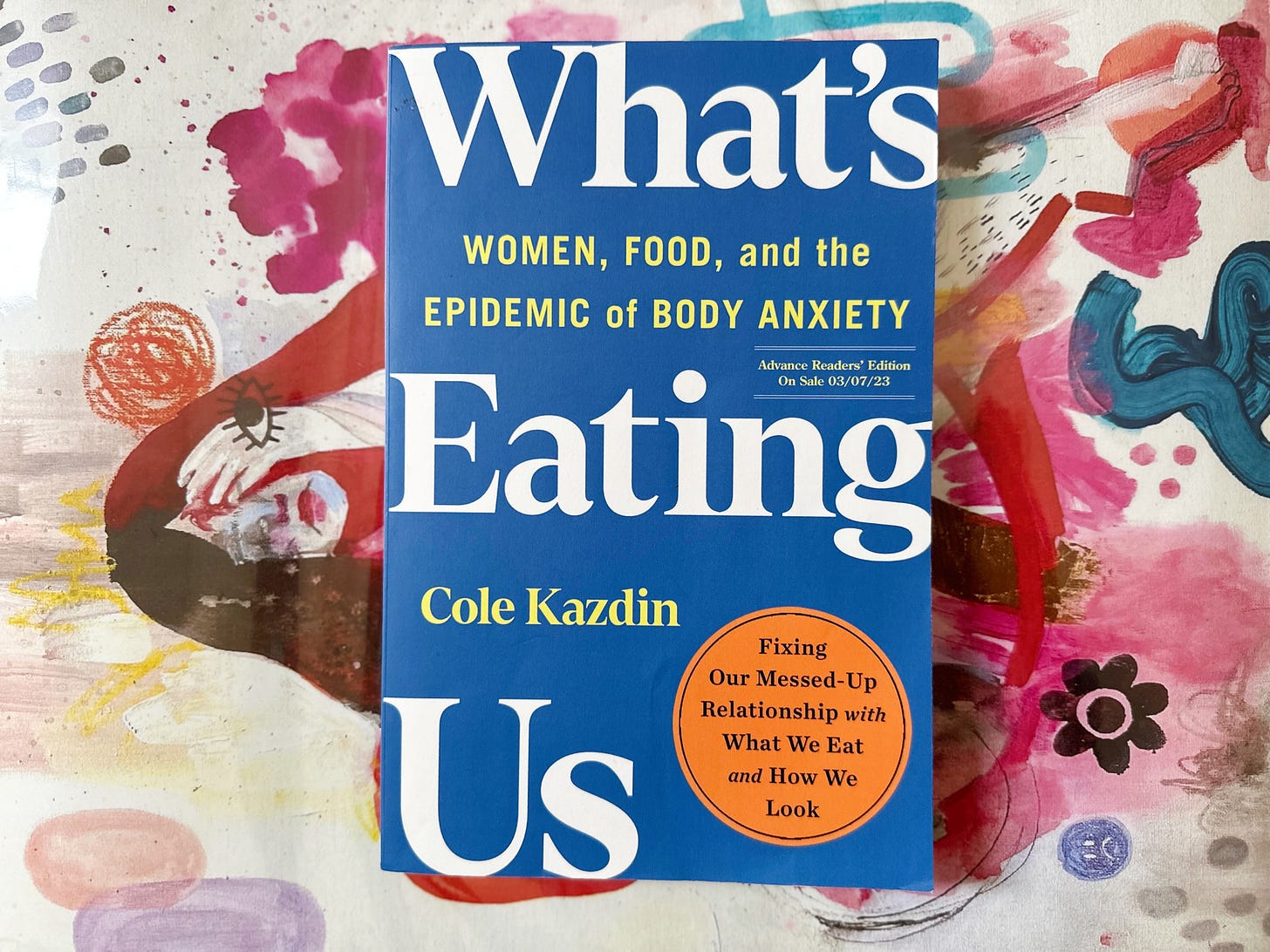
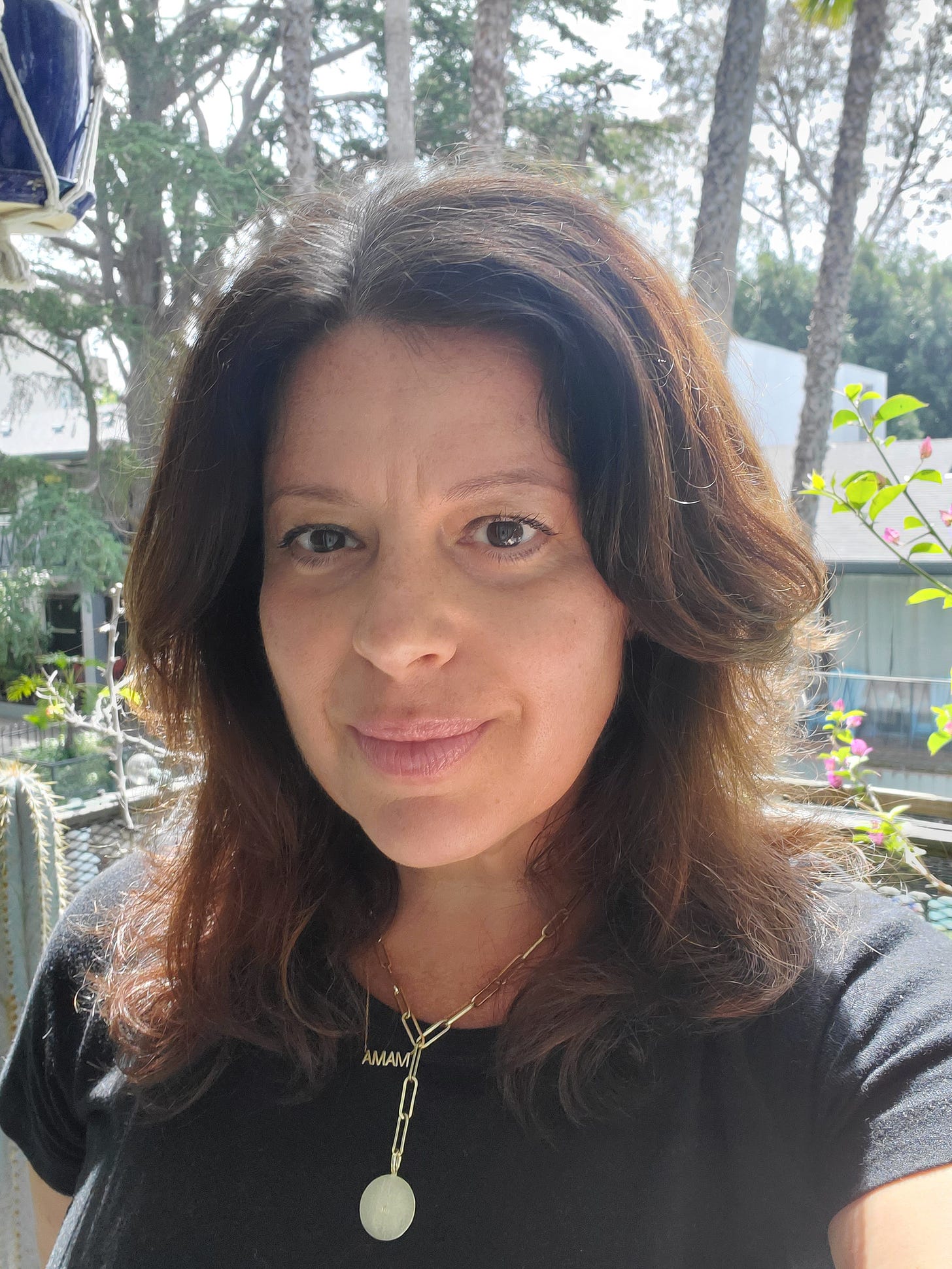

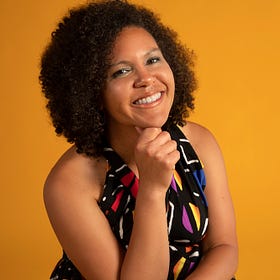
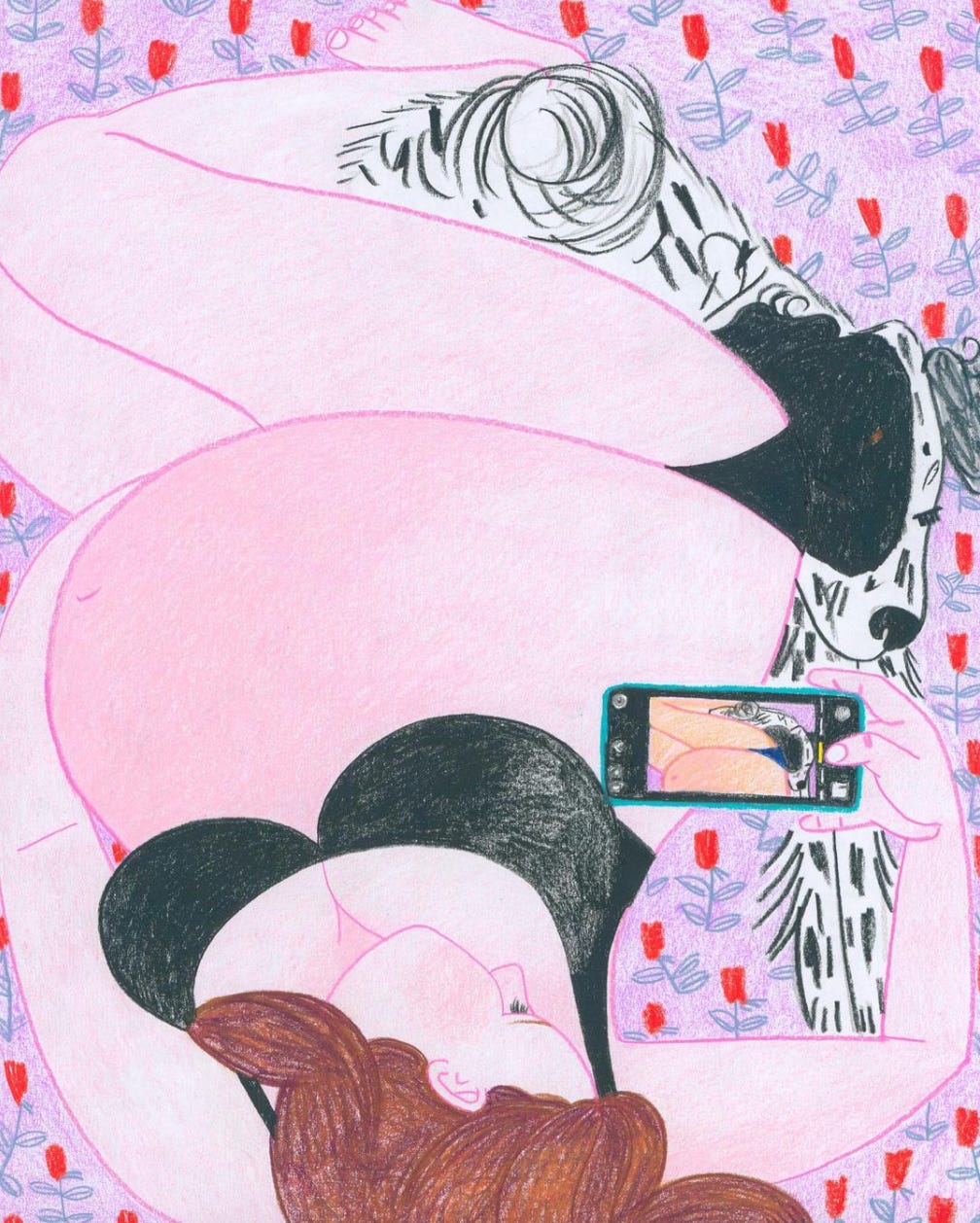
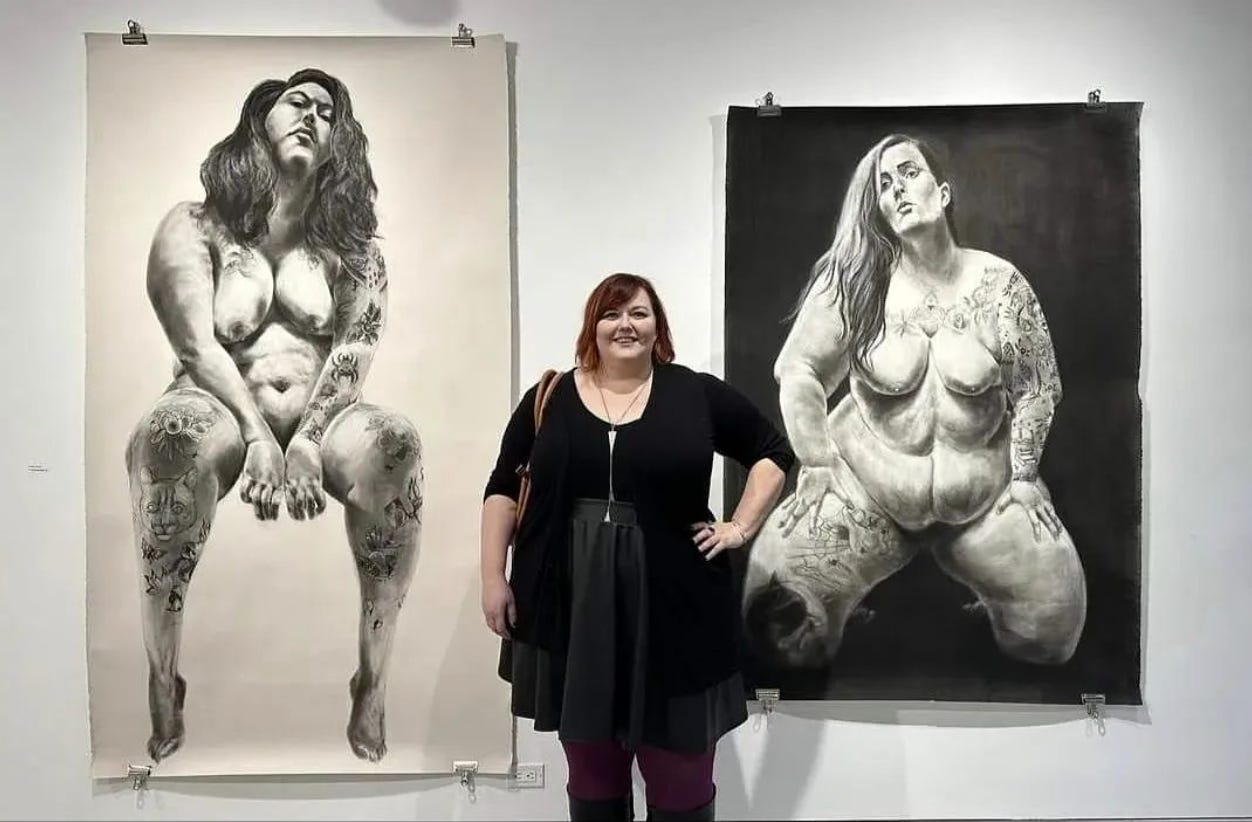


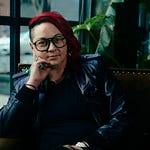






Share this post